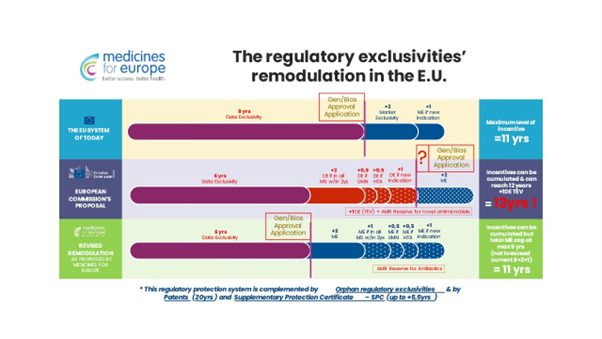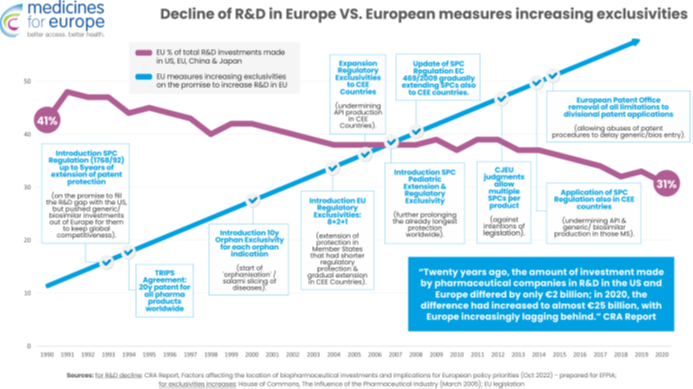Warsaw, 17th November 2023
Position of the Union of Entrepreneurs and Employers on the employment of foreigners
- Recent years have brought a considerable increase in the number of foreigners in Poland. According to data from the Social Insurance Institution, the number of foreigners registered at the end of July 2023 for social insurance amounted to 1.097 million.
- The Union of Entrepreneurs and Employers (ZPP) is of the opinion that it is necessary in the long term to fundamentally amend the current legal and administrative system with regard to foreigners.
- ZPP proposes introducing new regulations into the current system that make the employment of foreigners more flexible, including but not limited to: differentiating foreigners by their current place of residence, abolition of the “starost’s information on the local labour market”, creating more appointments for obtaining a visa in embassies and consulates, eliminating excessively restrictive regulations regarding illegal employment, strengthening the role of the employer in the process of obtaining a uniform residence and work permit, as well as the exchange of information between the employer and the authorities.
Recent years have brought a considerable increase in the number of foreigners in Poland. According to data from the Social Insurance Institution, the number of foreigners registered at the end of July 2023 for social insurance amounted 1.097 million. For reference, it was 651 thousand at the end of 2019, and merely 184 thousand in 2015. Independent analyses indicate that these values do not correspond to the total number of foreigners who worked in Poland in the years indicated. Foreign students under 26 years of age, for example, are not registered for purposes related to social security and are therefore not accounted for in these statistics. Moreover, many foreigners work illegally, also as a result of the ineffective public administration system and the law on foreigners in force. Certainly, the main motive behind illegal work may be the desire to avoid taxation and premiums related to labour, as well as the foreigners’ lack of knowledge or understanding of the Polish social security system, or the lack of faith therein. Nevertheless, overcomplicated bureaucracy and an exceedingly long waiting time for legalisation of employment are also significant factors pushing foreigners into informal economy. The current legal and administrative system devised with foreigners in mind is based on Community regulations as well as solutions that are commonplace in EU member states. However, it had not been prepared for such a massive increase in the number of foreigners in Poland. Frequent amendments to regulations, changes in the system and evolving ICT solutions in public offices only further testify to this. Already in 2019, the Polish Supreme Audit Office (Najwyższa Izba Kontroli) found that Poland was not administratively ready to provide services to foreigners. It was then shown that the period of legalisation of their residence had more than tripled over four years – from 64 to 206 days. To summarise, in spite of the absorption of an enormous number of foreigners into the labour market, we have observed countless issues, especially in the context of legalisation of labour. These problems and shortcomings resulted in a large number of foreigners being pushed into informal economy, suboptimal use of labour resources, and limited economic growth due to the failure to meet the personnel needs of Polish enterprises. Below we present a package of solutions that would enable a responsible and effective migration policy focused on maximising economic growth.
Hitherto implemented legal and organisational changes versus the waiting time for legalisation of work
According to our analyses, the changes that concerned work permits, residence permits, as well as declarations of entrusting work were aimed at multiplying the workload processed and boosting the efficiency of cases under consideration – a step in the right direction. Unfortunately, these changes have been insufficient. Residence cases constitute the biggest problem, as the waiting time for a case to be resolved varies greatly, depending on the voivodeship. Regrettably, this period is usually several times longer than the two months specified as the waiting time limit for resolving such a case in accordance with the Code of Administrative Procedure. In practice, it usually ranges from 6 to 12 months. As of present, in no voivodeship are residence permit cases settled within the statutory period, and officials admit off-the-record that this will never be possible under the current regulations.
In the case of work permits, according to unofficial information, the time necessary for a decision to be issued ranges from 30 days to half a year depending, again on the voivodeship. Apart from shortening the waiting time for a case to be processed, further reforms ought to be aimed at strengthening the interests of Polish citizens and businesses, in order to maximise the benefits of immigration while limiting potential risks. As the Union of Entrepreneurs and Employers, it is our belief that the system is in need of thorough reforms.
The target system
The current legal and administrative system devised for foreigners is imperfect. There are sentiments that work should be done to improve it. There are also opinions it should be re-created from scratch. We support the complete reorganisation of the system, basing it on the following principles:
- A foreigner is a party to the proceedings for a work permit.
- A foreigner, who receives a work permit, receives it temporarily with a territorial scope within the borders of Poland and without assigning the permit to a specific employer.
- The work permit specifies neither the profession nor the remuneration, so as not to inhibit the potential employment relationship and to optimise the use of labour resources.
- The extension of the work permit, and therefore also residence, must be based on the foreigner’s current verifiable and quantifiable activities under the existing permit, and not on documents confirming potential future employment.
Taking into account that the introduction of the above-mentioned principles is not possible under the current system, we support establishing a working group which, based on the above postulates, would create a coherent, rational, and fair system for foreigners and employers alike. Of course, with appropriate protection of the interests of Polish citizens – implicitly. Creating such solutions requires many months of work from experts and lawyers, as well as many months of consultations with representatives of any and all stakeholders.
At the same time, we understand that there are a number of potential improvements to the current system that can be implemented and enforced immediately. Efficient action in this matter is essential by reason of the fact that the Polish labour market is struggling with a significant workforce shortage hampering Poland’s economic development. Therefore, work on the new system and ongoing improvements should be carried out in unison. Below we present proposals of solutions based on the existing system.
- Differentiating foreigners by their current place of residence
Presently, there are no procedural differences between the issuance of a work permit for a foreigner staying in Poland and a foreigner who has never been to Poland and would like to apply for a work visa. Therefore, foreigners who legally reside in Poland and are legally employed often experience problems with an efficient change of employment as their applications for work permit extensions are processed with a delay. A number of pathological situations may arise from this state of affairs, ranging from the employer’s abuse of their position to working in the informal economy while waiting for the permit to be issued. Foreigners who want to strictly adhere to the regulations often decide to spend several weeks (even up to several months) being unemployed while awaiting the new permit, which is a critical economic challenge and a waste of labour resources. At the same time, people without residence in Poland are waiting in the very same queue for a work permit. The permit itself is intended to enable them to apply for a visa, but without the guarantee of obtaining it. In practice, the number of candidates from abroad is not limited and in the case of a wave of applications, voivodeship offices that issue decisions may be paralysed by an excessive number of applications. These applicants can wait and ought not to be treated with the same priority as people who are already in Poland and in urgent need of a new permit. People with residence in Poland apply for a new permit, because the previous one has expired, the type of work performed has changed, or they want to change their job, which means that their applications should be taken under consideration urgently.
An alternative to a work permit procedure with a division into persons with residence in Poland and staying abroad is to give all foreigners staying in Poland the possibility to perform legal work on the basis of a simplified procedure, i.e. a declaration of entrusting work. Currently, this simplified procedure applies exclusively to citizens of the Republic of Armenia, the Republic of Belarus, Georgia, the Republic of Moldova, the Russian Federation, and Ukraine. As part of the ongoing consultations, there is talk of expanding the list of countries, but it is not the nationality criterion that should be of key importance, but the foreigner’s current place of residence. The simplified procedure should be extended to other countries outside the European Union, yet it ought to apply only to those people who are currently legally residing in Poland. The enforcement of such a solution would relieve the burden on voivodship offices, which have problems with issuing documents within the statutory period. Labour offices that currently issue “declarations of entrusting work” have the necessary knowledge and experience to fulfil the entrusted task.
- Abolition of the “starost’s information”
When applying for a work permit (or work and residence permit), it is necessary in a number of cases to obtain a special document: “information of the starost on the local labour market”. The procedure itself takes more or less two to three weeks and constitutes unnecessary red tape. The labour market test assesses whether, in the case of plans to employ a foreigner for a specific position, there are no Polish employees with the appropriate qualifications available on the market. Labour offices are unlikely to be able to offer candidates from Poland, and at the same time they extend the period of legalisation of residence and work for a potential foreign employee.
As of now, certain professions are exempt from the need to obtain the starost’s information on the basis of a nationwide regulation, as well as based on regulations of individual voivodes. Lamentably, the list of professions requires updating, as the nationwide list has not been expanded since 2019. Furthermore, the substantial diversity of exempt professions in individual voivodeships distorts fair competition between enterprises.
We support the complete abolition of the so-called starost’s information, because it is an unnecessary bureaucratic procedure that in practice does not meet its purpose, i.e. it does not protect the local labour market against the excess of foreigners in a given profession. The plan to eliminate this procedure had already been included in the draft amendment to the Act on Foreigners, but the act itself was finally not voted on during the previous term of the Sejm (the lower chamber in the Polish parliament). Alternatively, complete abolition can be replaced by a suspended requirement to issue such a document for periods of low unemployment. A reasonable solution would be to set an acceptable level of unemployment, e.g. up to 6%. In this case, the starost’s information would not be required as long as unemployment locally or nation-wide does not exceed 6%.
- Creating more appointments for obtaining a visa in embassies and consulates
A major problem in terms of obtaining a visa for work by a foreigner is the lack of available appointments to submit a visa application. There have been cases where, despite obtaining a work permit in Poland, a foreigner could not submit a visa application within a year, which resulted in work permit expiration, making it impossible to further apply for the visa. This also directly gave rise to corruption situations related to attempts to illegally obtain an appointment. Therefore, the process of creating more appointments requires a thorough change, and it is also necessary to increase the pool of dates available in key embassies and consulates.
- The right to work while waiting for a residence and work permit, as well as after receiving the right to stay
The lengthy waiting time for a uniform decision regarding residence and work is a problem for both foreigners and their employers. As a rule, a foreigner’s stay is considered legal while waiting for an official decision. At the same time, foreigners can take up legal work if they have a work permit or another document enabling employment. In certain cases, legal work may be continued after obtaining a stamp in the passport confirming the submission of an application for a residence permit, but this only applies to selected scenarios. We propose that all work performed from the moment of obtaining the stamp in the passport until the moment a decision is issued be recognised if the foreigner was performing legal work at the time of receiving the stamp. In such a situation, the stamp should contain an annotation “access to the labour market”. Similarly, in the case a residence permit has already been granted. In most cases, if a foreigner wants to change employment, they must also change their residence and work permit. The procedures for changing employers after obtaining a residence and work permit should be simplified so as not to duplicate the entire process of granting the right to stay with each change of employer.
- Elimination of excessively restrictive regulations regarding illegal employment
Part of the regulations regarding the work of foreigners seems to be excessively restrictive. For example, Art. 2 sec. 1 point 22a of the Act “on employment promotion and labour market institutions” considers a foreigners work illegal if they “(…) perform work under different conditions or in a different position than those specified in the relevant work permit (…)”. Provided, by mutual consent of the employee and the employer, certain changes were made to the terms of the contract, the work should not be treated as if the work permit had never been granted. This should also apply to downtime at work at the employer’s fault or failure to complete working hours at the employee’s fault. Currently, in such situations, the employer should pay the full remuneration regardless of the reason why the number of working hours deviated from the contract, in order to maintain the conditions of the permit. Therefore, violating the terms of a work permit should not be tantamount to illegal employment but should constitute a separate offense.
- Strengthening the role of the employer in the process of obtaining a uniform residence and work permit, as well as the exchange of information between the employer and the authorities
Currently, when a foreigner is applying for a work permit, their future employer is a party to this procedure. A completely different scenario takes place in the case of uniform work and residence permits – the foreigner is a party to the procedure, while the employer only presents documents regarding employment at the foreigner’s request. Having provided the documents to the foreigner, the employer has no further insight into the process of obtaining the permit. Unless the foreigner informs the employer, they will not know whether the decision has already been issued or not, nor what is the result of the proceedings. This is grotesque considering that the decision affects the legality of employment. In the event of a negative decision which becomes final, the employer will be liable for illegal employment, even if they had no knowledge of the outcome of the proceedings. We postulate that the employer, as an auxiliary party to the procedure, should have full insight into the administrative process regarding residence and work, and therefore be informed about the date and contents of the decision.
Find out more: 17.11.2023 Position of the Union of Entrepreneurs and Employers on the employment of foreigners

 ZPP Newsletter
ZPP Newsletter

















Recent Comments